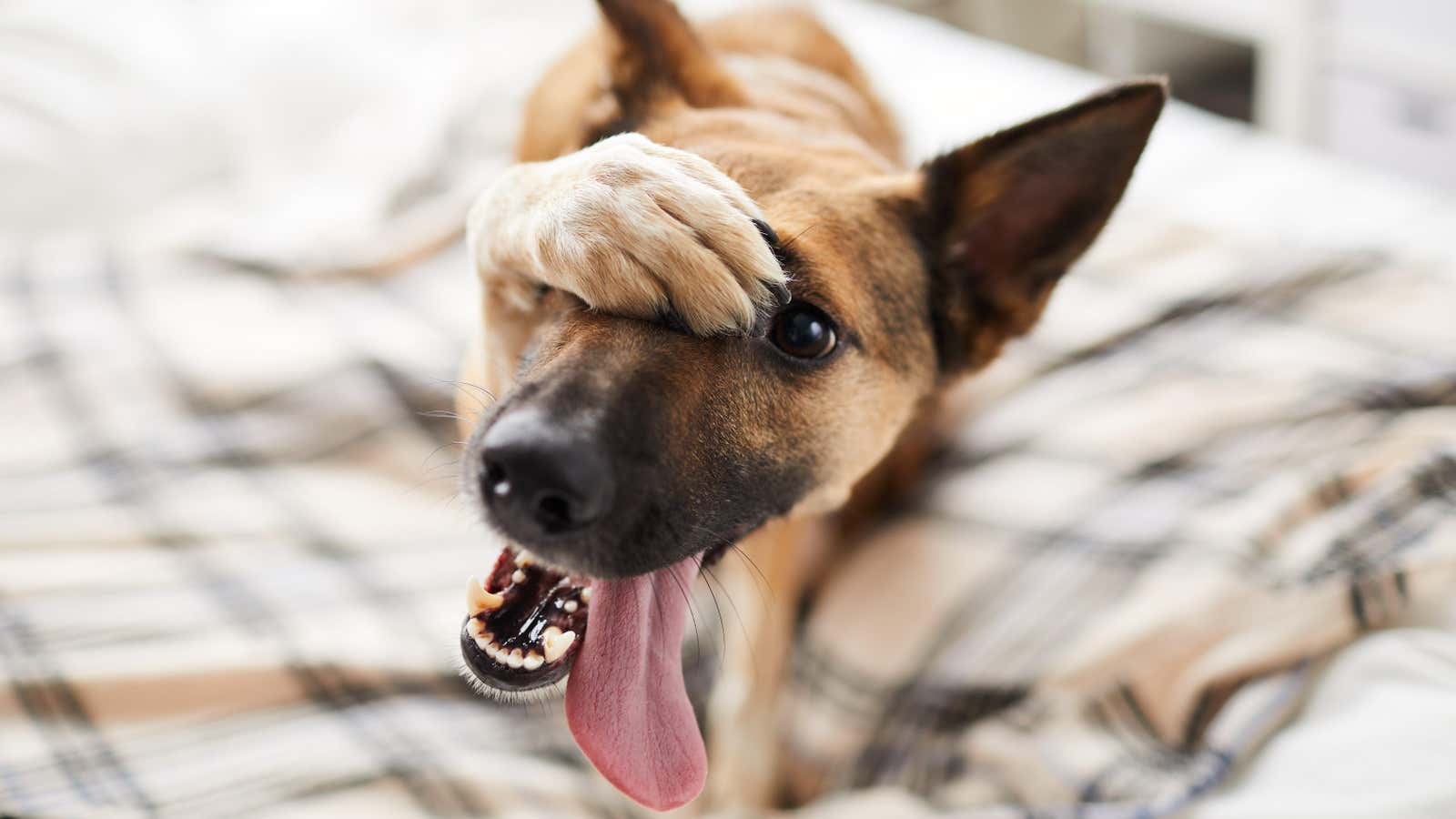Stop Rewarding Your Dog’s Bad Behavior

Sometimes when dogs (or human children) do things they shouldn’t, it’s cute and funny. (Other times it’s definitely neither.) When this happens, it’s tempting to laugh, smile, or openly encourage them to keep doing it. But of course, this is the opposite of what you should be doing.
And while some situations are pretty good examples of rewarding your dog’s bad behavior— for example, giving him a treat to keep him from barking—other times you can encourage him to act without even realizing it. Here are some of the ways you can encourage your dog to develop unwanted habits, and what to do instead.
How You Can Contribute to Your Dog’s Bad Behavior
Let’s say your dog doesn’t stop barking. We probably don’t need to tell you that a treat or toy to calm them down only encourages them to bark more.
But, according to Mindy Waite, Ph.D. , SeniorTailWaggers.com Certified Dog Behavior Counselor, scolding or giving your dog other forms of attention also reinforces the unwanted behavior, especially when they interpret your reaction as part of play. Another example is providing dogs with toys to “distract them” from problem behaviors such as jumping.
“During Covid, this was especially problematic for owners who were on Zoom all day and were effectively captive to their barking dogs,” Waite tells Lifehacker. “They weren’t necessarily able to ignore barking during a call, so barking behavior during Zoom calls worsened over time as owners continued to reinforce the dog to stop the barking.”
How to Improve Your Dog’s Behavior (and Yours)
In general, your best bet is to figure out why your dog is behaving a certain way, or more specifically, what that behavior does for him, Waite says. For example, do they bark because they want attention, or for you to play with them? Or are they hungry and want food? Or do you want a toy?
“Any of the above behaviors can be supported by different or combination of reinforcers – food, attention, toys, walks, etc. – and so the interventions that owners should implement are behavior independent, but instead tailored to the reason their dog is participating in problematic behavior,” Waite explains.
Once you’ve figured out why your dog is behaving this way, the next step is to offer him a more polite way to get the reward he wants. But don’t just ignore them, Waite says, this can make things worse because it often makes dogs even more eager to get your attention or any reinforcement they want.
“Perhaps you agree that your dog paws you for attention instead of barking or barking, or perhaps you could teach him to bring you a toy for a quick game of tug instead of jumping on you,” Waite explains. “Or maybe you’re willing to reward the dog for jumping on you, but only when you’re in the backyard and ready to play.”